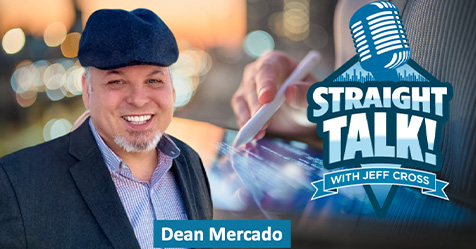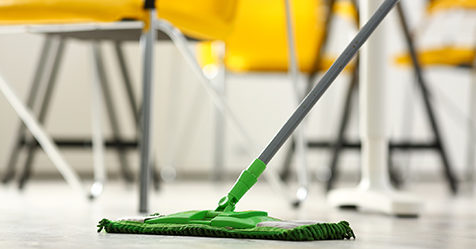During Student Maid’s busiest seasons, the Gainesville, FL-based commercial and residential cleaning service employs up to 400 cleaners—mostly millennial college students.
Student Maid Founder Kristen Hadeed, who started the company as a University of Florida undergrad, is also a millennial. In 2015, she and her fellow generation members—Americans born between the early ’80s and 2000, who are roughly 18 to 34 years old—became the largest share of the American workforce, according to the Pew Research Center.
However, historically, the cleaning industry has been an industry with most, if not all, levels of employment—from the higher ups to those doing the physical cleaning—featuring older generations of candidates.
As the older generations in the commercial cleaning industry mature and reach retirement age, the next generation of workers will need to take their place; however, how companies recruit and retain will need to change, as well, while maintaining the industry’s hard-earned integrity.
To successfully hire millennial employees, commercial cleaning service providers will need to understand what amenities, outreach efforts, and schedules generation members want—and what training and career development they’ll need.
Recruiting Millennial Workers
If you don’t have direct access to future generations of workers, digital tools can be the key to promoting commercial cleaning jobs to the tech-savvy generation.
Research has shown that younger workers take a different approach to job searching and satisfaction than Baby Boomers or Gen X workers—or those in their mid-30s to 50s. Nearly half—or 47 percent—use mobile devices during a job search, and 42 percent have used Facebook or Instagram to assess a company’s culture, according to a recent Jobvite survey.
Some organizations proactively post information that highlights their companies as favorable places to work. In 2014, 47 percent of businesses across a variety of industries used social networks to market their talent brand, according to LinkedIn.
Leadership coach Marc Robertson, author of Working with Millennials: Using Emotional Intelligence and Strategic Compassion to Motivate the Next Generation of Leaders, says companies should be tweeting about their successes, and says, “If you’re not recruiting on social media, you’re missing the boat.”
Selling the Trade
Once you’ve made contact with millennial candidates, you’ll need to convince them your commercial cleaning opportunity trumps all other options.
Consider communicating the position’s positive features, such as:
Scheduling advantages: Millennials often view work as a priority, but it’s not necessarily their sole purpose in life.
“Millennials love flexibility,” says Robertson, whose first job was as a bank janitor as a teenager. “Because [cleaning services] may be needed in the morning, or evening, that’s one of things you can definitely use to attract millennials to work in the industry.”
Eighty-one percent of millennials think they should be allowed to set their own hours at work, according to a survey conducted by MTV. To accommodate this attitude, Student Maid lets its cleaning crew members commit to a set number of hours per week each semester and select their own schedule. “However,” Hadeed says, “we do say, ‘If you’re going to commit to this, we’re going to hold you to it.’”
Fulfilling work: Timothy Russ, 26, first gained industry experience working as a part-time maintenance helper at Lockport Township High School in Illinois when he was in a student. He was initially hired at the school as a substitute custodian. However, two-and-a-half years ago, he was promoted to district custodial supervisor. To encourage recruitment, he launched a community service program where students can complete volunteer hours after school by helping out with cleaning tasks.
“For me, it’s important to feel a connection to my job,” Russ says. “I live in the community, and the school is so central to it that I really feel a connection to the organization.”
For many millennials like Russ, a paycheck isn’t always their central motivation. Six-in-10 millennials say a sense of purpose was a factor in choosing their current job, according to Deloitte’s 2015 Millennial Survey.
“Their main concern isn’t money, as much as it is feeling good about how they work, and feeling like they’re contributing to something,” Robertson says.
911 Restoration, which corrects water and other damage in hotels and other commercial buildings, has found its work can be a selling point. “Millennials want to know there’s something bigger we do here,’” says founder and franchisor Idan Shpizear. “We talk about the work in a way that it’s not just about cleaning, it’s about the emotional needs of our clients—that helps connect everybody to our mission.”
Screening Candidates
Disaster recovery service 911 Restoration has found millennial employees through a variety of channels, including talking with vendors, online advertising, and referrals. However, Shpizear credits the company’s interview process with helping the company find its best hires.
He advises forgoing the typical interview banter for a more serious conversation about the employee’s work habits and goals. “See what kind of questions the interviewee is asking you,” Shpizear says. “What are his interests, and what’s pulling him?”
To ensure potential employees are up for the challenge, be honest about the challenges commercial cleaning work can involve.
Hadeed from Student Maid recommends providing an example of a typical workday.
“A lot of people don’t realize how physically demanding it is,” she says. Additionally, she recommends avoiding leading questions.
“If you say, ‘We work early in the morning; are you OK with working early?’ you’re basically telling the person how you want them to answer,” Hadeed says. “Ask open-ended questions—[such as] ‘Tell us about your ideal schedule’—and candidates will reveal a lot in an interview.”
Sealing the Deal
As millennials continue to comprise more of the available employee pool, commercial cleaning organizations will need to create a compelling proposition—one that includes ample recognition and guidance, flexibility, and other elements—to court and keep them.
“Companies all over the country have challenges relating to millennials, whether they’re hiring them to clean toilets, flip burgers, or work at a Fortune 500 company,” Hadeed says. “[But] in 2020, they’ll be at least half of the workforce; and they’ll also be our customers—so it’s really critical to try to understand one another and bridge that gap.”




